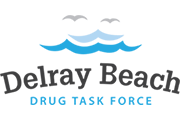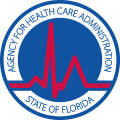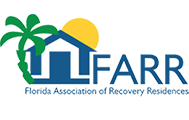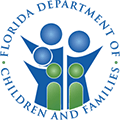Equine Therapy in Dual Diagnosis Treatment
Since the initial domestication of horses roughly six thousand years ago, horses have been instrumental in the development of human civilization. For millennia, humans relied on horses for everything from travel to warfare to commerce. Even today, when machines have replaced more of the functions horses used to perform, the horse continues to remain an important cultural symbol of beauty and freedom, just as it did for many societies in centuries past. It is only more recently that people have realized working and interacting with horses can have a beneficial therapeutic impact on those struggling with a variety of mental health issues.
Equine therapy, alternatively known as equine-assisted therapy or equine-assisted psychotherapy (EAP) refers to a collection of therapeutic treatments involving horses, designed to improve both physical and mental health. Surprising to some, South Florida is actually a hotbed of horse-related activities. The area is home to numerous ranches and horse farms in the western parts of the counties, and north of Wellness Resource Center’s Boca Raton campus lies Wellington, which has rapidly become the equestrian sport and riding capital of the United States. In fact, Wellness Resource Center has two certified equine-assisted psychotherapists on staff, and WRC has expanded our equine therapy programming in recent years to ensure that all of our partial hospitalization dual diagnosis clients have the opportunity to participate in equine therapy groups.
How Does Equine Therapy Work?
Equine facilitated therapy at Wellness Resource Center involves non-mounted activities, such as feeding, grooming, and leading horses, as well as other tasks. These activities are supervised and facilitated by a credentialed mental health professional so that the exercises coincide with each client’s greater therapeutic goals. Therapeutic goals that are amplified by equine therapy include setting boundaries, developing healthy emotional attachments, and teaching non-confrontational assertiveness — all skills that are important to improve mental hygiene and long-term recovery from drug addiction and alcoholism.
Equine-assisted therapies have proven effective for treating substance use disorders and chemical dependency when incorporated into a larger clinically based model, which is why we have made equine therapy a staple of our overall dual diagnosis programming at Wellness Resource Center. Equine therapy at Wellness falls under the umbrella of experiential therapy services, which are therapeutic groups focused on action and movement. These groups include equine group, our outdoor activity/adventure groups, and our psychodramatic role-playing groups [click here to learn more about experiential therapy]. Equine therapy provides a holistic alternative to traditional talk therapy or group process therapy which some find very beneficial. For most clients, the combination of process therapy and equine therapy means that clients can explore and process issues on two fronts, taking what they experience at the ranch back to their primary therapist and vice versa.
“I had been in therapy for years,” recalled one of our former clients, a recovering heroin addict. “Since I was a child I’ve been in therapy and I felt like no one could get through to me. But the first time I did equine therapy I was crying like a little kid by the end of it, it was that intense. I felt like I connected with the horse during it — there was something spiritual about it.”
Conditions Treated through Equine Therapy
Equine assisted psychotherapy helps clients improve on a variety of life skills, such as emotional awareness, empathy, impulse control, and distress tolerance. Many of the skills emphasized in equine therapy are ones that are either sorely lacking or the source of stress for many dual diagnosis clients. Clients suffering from alcoholism, drug addiction, and co-occurring mental health disorders benefit from equine therapy because it builds self-confidence, teaches problem-solving skills, and instills in clients a sense of responsibility. For our dually diagnosed clients, participating in equine and experiential therapy, in concert with individual and group process therapy, is extremely valuable because it allows our clinical team to tackle deeply rooted psychological issues from multiple angles. Clients with mental health concerns like depression, anxiety, and PTSD, who have also been self-medicating with alcohol or drugs usually have a profound enmeshment between their addiction and co-occurring issues. As a result, there is more therapeutic work to be done to remove those severe entanglements.
Because horses are larger than humans, there is an inherent degree of respect during equine therapy sessions, one that teaches clients the value of boundaries and their own limitations. Equine therapy exercises serve as a microcosm for the real world; the horses provide feedback during the exercises in real time, resist if the client is approaching the task incorrectly, and teach the client through action greater self-actualization. During the exercises, our equine therapists observe the client’s interaction with the horses in order to identify behavior patterns and help clients address any emotional challenges. Equine therapy can have a magnifying effect, providing focus to difficulties clients are working on through other therapeutic channels.
If you would like more information on equine therapy at Wellness Resource Center, or on the overall dual diagnosis curriculum at our Boca Raton center, please give us a call today.












